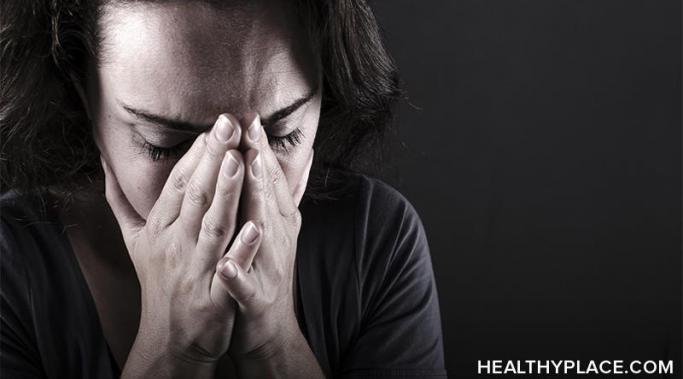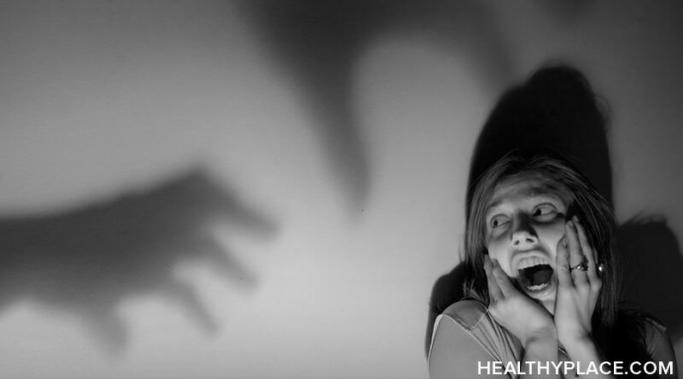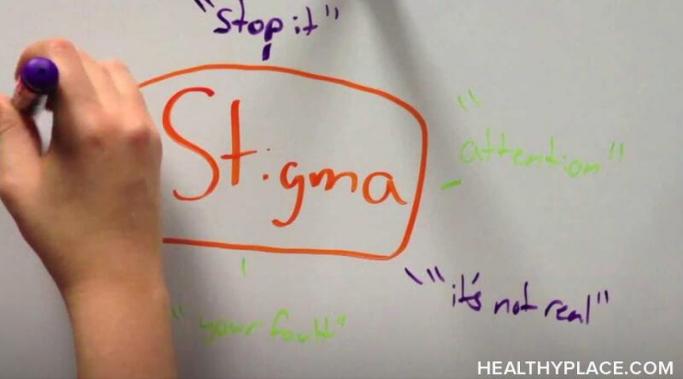When you are constantly anxious, it is hard to confront traumatic experiences and process your feelings from trauma. What can end up happening as a result is that you may avoid dealing with the situation. However, processing your feelings from trauma is critical.
Post Traumatic Stress - Treating Anxiety
One of the most significant symptoms of anxiety that I have struggled with has been hypervigilance. Hypervigilance pertains to being on guard and alert for threats in the environment and may result in engaging in behavior with the purpose of preventing danger.1
I've dealt with anxiety for a long time, and I've gotten to a point where I can recognize the symptoms of it. The problem is that sometimes anxiety happens for no apparent reason. When this happens, it's hard not to attribute it to something happening at the time. But sometimes, there really is not anything to attribute it to, and so, trying to problem-solve to help reduce any symptoms related to anxiety becomes difficult.
Even positive events can trigger trauma memories sometimes. This week, the hashtag #metoo flooded social media accounts to demonstrate the widespread problem of sexual assault and harassment. We witnessed a multitude of voices share deep-seated shame and anxiety associated with trauma. Whether through a simple #metoo or a painful story, we unloaded our burdens. While freeing for many, the hashtag could have triggered trauma memories for some.
I'm sharing this deeply moving, powerful short film not simply because abuse is a topic around which there cannot be too much awareness but because anxiety doesn't come from nowhere. Abuse isn't the only cause (there are many, even if you have been abused) but the effects of abuse are inseparable from mental health, whether or not you have a clinically diagnosable mental illness.
Sometimes I get woken up by anxiety-causing nightmares which isn't so odd, what with the PTSD n’all (Understanding PTSD Nightmares and Flashbacks). Full-on sweating through my pyjamas in a very non-sexy manner nightmares, so what do I do? Rollover and go back to sleep. You might be tempted to ask why I cope with nightmares like that, but I doubt I’m alone in the answer.
Fear denied, repressed, suppressed, or put out of mind is not fear extinguished.
Treating anxiety: 'as if'
I've been told that acting 'as if' I'm not nearly as anxious as I am is a helpful thing. It's also dangerous. As with almost any technique sometimes is fine but if you're anything like me and you'll do whatever you have to do to be able to put your anxiety aside and function, and if what you want is to go on with as much of life as you can, uninterrupted by fear, then it can become destabilizing.
Happy is what brings healthy, and viceversa, so it can't be that much of a surprise anxiety and depression have had some pretty rough consequences on my health; High blood pressure at 25, on-and-off flings with anemia, near-constant sleep deprivation.
I may as well have an imp bouncing up and down on my kidneys whilst someone tells my nervous system to pump out all the stress hormones its got, so I can feel normal, or at least prepared. Like a Girl Scout on crack. That's PTSD hypervigilance for you.
It's also that sometimes our bodies express what we are otherwise unwilling, or unable to say.
Life with mental illness isn't always fun. Not just because I have a real illness, and that real illness really does affect my life but because some folks have trouble accepting this. I'm not entirely sure why except they don't like the thought that someone with mental illness can "omg, look just like them," and still be quite unwell.
Even after all this talking, and doing, fixing, and mulling-over, and redoing, I still find that I go through stages of really, really disliking dealing with myself, all this: the anxiety.
I worry about the things that maybe I can't fix.
That's potentially the hardest thing to face about the words which preface my diagnosis; It isn't PTSD. It's 'chronic, severe' PTSD.
So you see, there's really no getting out of it. I can't say, "well, I only have a little post traumatic stress," or "Anxiety only gets this bit of my life!". It gets rather a lot, actually. And people with anxiety disorders don't get nearly enough say about it. Not. nearly. enough.









